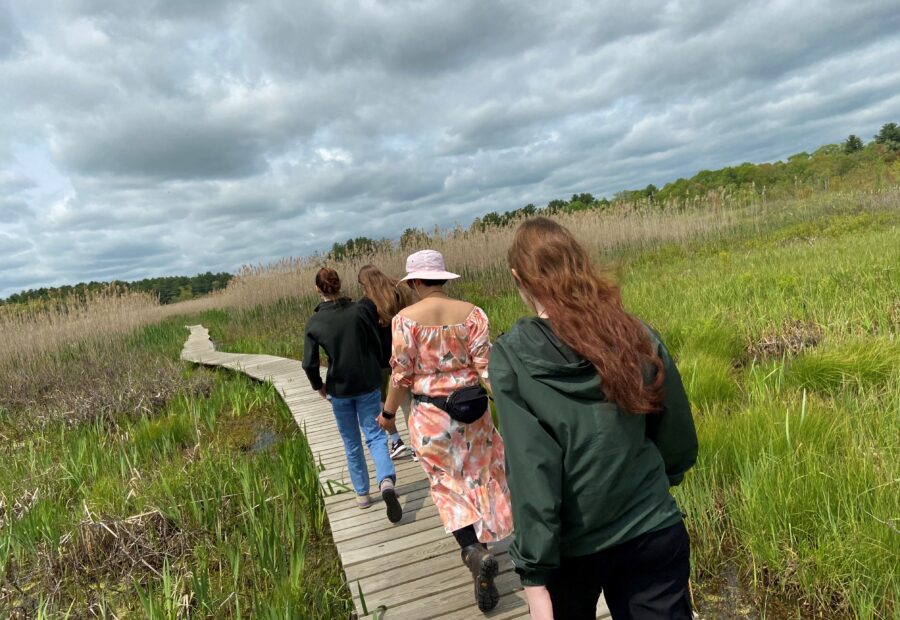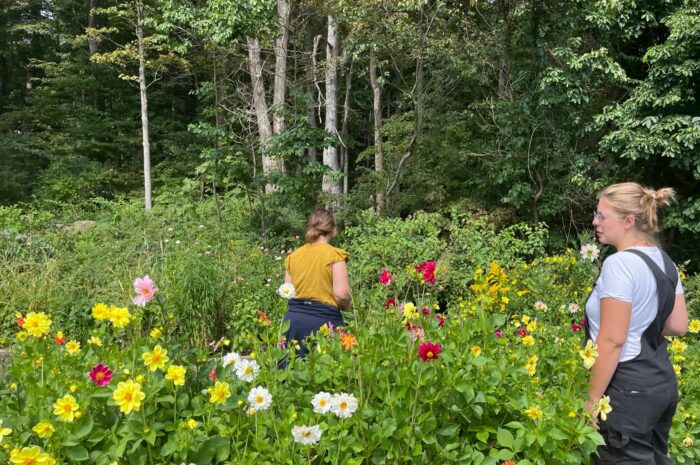Residential Treatment for Adult Women Struggling with Mental Health & Emotional Challenges
Angelus House at Wellspring is a premier mental health residential treatment program for young adult women age 18 and older.

Angelus House at Wellspring is a premier mental health residential treatment program for young adult women age 18 and older.
Our supportive residential community, designed for up to 10 residents, offers a relational, family-style environment that guides women through treatment, supports smooth transitions to day and outpatient programs, and helps them prepare for their next steps in school, work, and life.
The program supports individuals with a broad range of mental, emotional, family and relationship challenges, including complex emotional or behavioral disorders, eating disorders, anxiety and trauma-related concerns, mood regulation challenges, self-injurious behaviors, and co-occurring substance use disorders.
Angelus House sits on 10 acres, where residents live in a charming country home featuring an inviting front porch, a spacious living room with a cozy fireplace, and beautiful perennial and organic vegetable gardens. Meals are shared in the kitchen’s adjoining dining room, fostering connection between residents and staff. Building community and cultivating meaningful relationships are central to the treatment experience.
Wellspring’s therapeutic approach is based on the belief that beneath each person’s sadness, anger, pain and stress lies an injured self that lacks the foundation of trust necessary for building healthy relationships. Our relational treatment model addresses injuries with both nurturance and structure to reactivate each person’s ability to grow in a meaningful way.
Angelus House offers a comprehensive treatment program that supports individuals in an intensive treatment process that works to restore themselves and their relationships.
Angelus House prides itself on integrating relational, psychodynamic and evidence based therapies to create a treatment experience that addresses specific individual needs with an emphasis on the emotional and creative-expressive modalities. The multi-disciplinary treatment team includes a Psychiatrist, Nurse, Psychotherapists, Social Workers and Milieu Counselors. Specific clinical approaches used by Angelus’ treatment team includes CBT, expressive processing, psychodynamic therapy, DBT, art therapy, solutions focused therapy and EMDR. Clinical therapies are integrated with organic gardening, culinary, land and animal programs, adventure programs, and other experiential activities that are designed to rebuild the body while nurturing the mind and spirit.
““Going to Angelus House saved my life. There is no other program like this in the country. Other programs I’d been in focused on stopping my ‘problem behaviors’ instead of getting to the root of the issue. At Angelus, I discovered the origins of my mental illnesses. I started healing childhood wounds and learned to nurture my inner child. And eventually, my illnesses were no longer unmanageable and life-interfering. The place isn’t magic. It only works if you work too. It was some of the hardest work I’d ever done in my life, but I wouldn’t be here without it. My life is now something I treasure deeply.”
— Former Angelus resident

All treatment modalities are included in the daily rate which is the financial responsibility of the resident and her family. Angelus House also accepts out of network insurance based on your insurance plan’s definition of medical necessity on the day of admission.
Staff at Angelus House includes a team of Psychotherapists, a Psychiatrist, Registered and Practical Nurses, Creative Therapists, Nutritionist, Teachers, Social Workers and Milieu Counselors.
As a person stabilizes and strengthens, treatment at Angelus House shifts to include a discharge plan that ensures a successful return to life with family, college or independent living. Some residents begin college course work or employment before their transition home.
We provide many opportunities for residents for healthy development of life skills and social enrichment activities, such as cooking meals, gardening, creating art, yoga and knitting. Individuals also enjoy going off campus for horseback riding, hiking, visiting fun and interesting galleries and state parks, bowling and exploring local farms and community collaboratives.